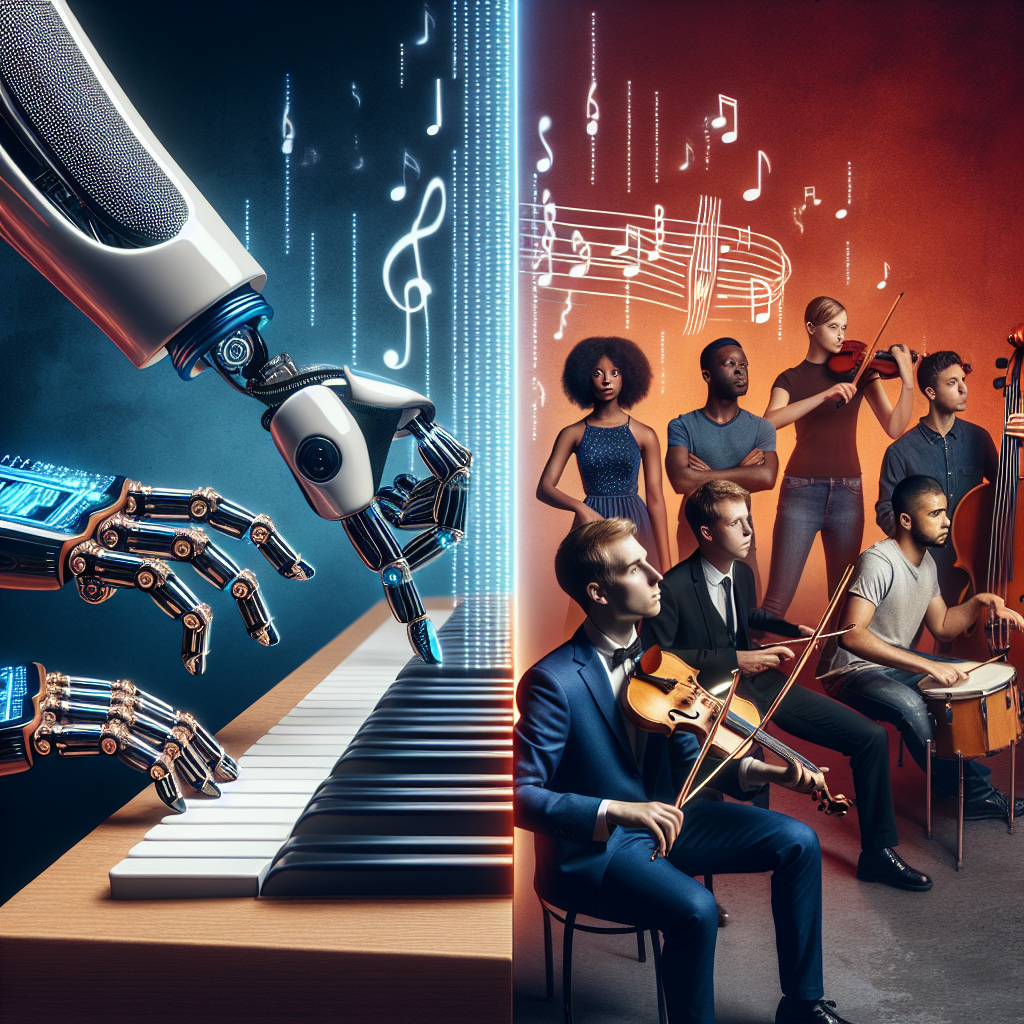AI in the Music Industry: A Game Changer or a Threat?
Artificial Intelligence (AI) has been making waves across various industries, and the music industry is no exception. From creating music to personalized recommendations, AI is transforming the way music is produced, distributed, and consumed. While some view AI as a game-changer that can revolutionize the music industry, others see it as a threat that could potentially replace human creativity and innovation. In this article, we will explore the impact of AI on the music industry and whether it is truly a game-changer or a threat.
AI in Music Creation
One of the most significant ways AI is impacting the music industry is through music creation. AI algorithms can analyze vast amounts of data and generate music compositions that mimic human creativity. Companies like Amper Music and Jukedeck have developed AI systems that can compose music in various genres and styles. These AI-generated compositions can be used in films, commercials, and other media productions, saving time and money for content creators.
AI can also help musicians and producers with the songwriting process. Tools like AIVA and Amadeus Code can assist in creating melodies, chord progressions, and even lyrics. These AI tools can provide inspiration and ideas for musicians, helping them overcome creative blocks and come up with new and innovative music.
While AI-generated music may lack the emotional depth and complexity of music created by humans, it can still be a valuable tool for musicians and content creators. AI can provide new ways to explore different genres and styles, helping artists push the boundaries of creativity and innovation in music production.
AI in Music Recommendation
Another area where AI is making a significant impact in the music industry is in music recommendation. Streaming platforms like Spotify, Apple Music, and Pandora use AI algorithms to analyze user data and provide personalized music recommendations. These algorithms take into account factors like listening history, favorite genres, mood, and even the time of day to curate playlists and suggest new music to listeners.
AI-powered recommendation systems have revolutionized the way people discover music. Instead of relying on traditional radio stations or music charts, listeners can now discover new artists and songs tailored to their individual preferences. This has helped independent artists and niche genres gain more exposure and reach a wider audience through streaming platforms.
However, there are concerns about AI algorithms promoting mainstream music over independent artists and limiting diversity in music consumption. Critics argue that AI recommendation systems may prioritize popular and commercially successful artists, leading to a homogenization of music culture and stifling creativity and innovation in the industry.
AI in Music Production
AI is also being used in music production to enhance sound quality and optimize the mixing and mastering process. Tools like LANDR and iZotope use AI algorithms to analyze audio tracks and apply automatic adjustments to improve the overall sound quality. These AI-powered tools can help musicians and producers achieve professional-sounding results without the need for expensive studio equipment or extensive technical knowledge.
AI can also assist in live performances and concerts by providing real-time audio processing and sound engineering. Companies like KLANG:technologies and Audiobridge use AI algorithms to optimize sound levels, EQ settings, and effects during live performances, ensuring a consistent and high-quality audio experience for audiences.
While AI-powered tools can streamline the music production process and improve efficiency, there are concerns about the impact of AI on jobs in the music industry. As AI technology advances, there is a fear that AI systems could replace human musicians, producers, and engineers, leading to job losses and a decline in creativity and innovation in the industry.
FAQs
Q: Can AI replace human musicians and composers?
A: While AI algorithms can generate music compositions and assist in the songwriting process, they still lack the emotional depth and creativity of human musicians and composers. AI can be a valuable tool for musicians and content creators, but it is unlikely to completely replace human creativity in the music industry.
Q: How does AI impact music consumption?
A: AI algorithms in streaming platforms like Spotify and Apple Music provide personalized music recommendations based on user data, helping listeners discover new artists and songs tailored to their preferences. However, there are concerns about AI algorithms promoting mainstream music over independent artists and limiting diversity in music consumption.
Q: What are the benefits of using AI in music production?
A: AI-powered tools can enhance sound quality, optimize the mixing and mastering process, and streamline music production. AI algorithms can analyze audio tracks and apply automatic adjustments to improve sound quality, helping musicians and producers achieve professional-sounding results without the need for expensive studio equipment or technical knowledge.
In conclusion, AI is undoubtedly transforming the music industry in various ways, from music creation to recommendation and production. While AI can be a valuable tool for musicians and content creators, there are concerns about the impact of AI on jobs, creativity, and diversity in the industry. Ultimately, the future of AI in the music industry will depend on how it is implemented and integrated into the creative process, balancing innovation with human creativity and expression.

